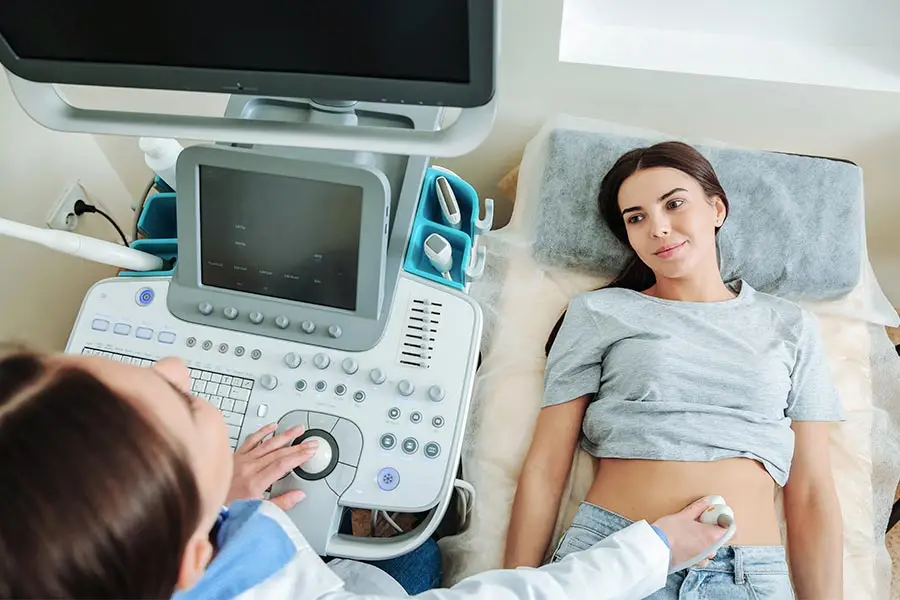If you’ve started to explore the potential for IVF treatment, then it’s likely you’ve been trying to conceive for a while without success.
There could be reasons for this, so it’s important that before you embark on the assisted conception journey, you and, and possibly your partner, have some tests beforehand to establish what the problem, if anything, might be.
NOW-fertility encourages prospective patients that request an appointment with us to provide copies of any previous test results, and past medical records, plus, of course all details of any previous IVF treatment cycles.
NOW-fertility doesn’t offer fertility tests, so here’s some of the most common ones you should consider before making your appointment with us. Of course, we can recommend clinics close to your home or work where all these tests will be available.
Ultrasound is an internal examination that allows assessment of your uterus (womb), ovaries and to detect obvious abnormalities in the fallopian tubes. The number of follicles inside the ovaries can also be determined. This is known as antral follicle count, and it is a useful predictor of ovarian reserve.
It can help to reveal abnormalities including the presence of fluid, cysts in the ovaries, fibroids, or polyps in the uterus.
During the scan, a small ultrasound probe is inserted into the vagina, with images appearing on a monitor. You may feel some discomfort, but it should not be painful and will not take very long.
Hysteroscopy uses a narrow telescope with a light on the end to inspect inside your womb.
Blood tests: Blood tests are simple to take but reveal a lot about your fertility. For instance, a blood test will show the levels of the hormone progesterone when you have your period, to check whether you are ovulating.
If your periods are irregular, you will be offered a test to measure levels of a hormone called gonadotrophins, which stimulates the ovaries to produce eggs.
Blood tests also help physicians check for healthy ovarian reserve. The following tests are all useful in routine clinical practice: FSH, or follicle stimulating hormone, responsible for stimulating egg production; AMH, or anti-Mullerian hormone, which is produced by the ovarian follicles – the higher your levels the more potential eggs you have; LH or luteinizing hormone, which triggers the start of ovulation; oestradiol, the sex hormone in women responsible to starting the reproductive cycle; TSH, the thyroid hormone; and FT4, which regulates metabolism and indicates the correct function of the thyroid gland.
HyCoSy or Hysterosalpingo Contrast Sonography, checks for blocked fallopian tubes and Saline Infusion Sonography helps to assess the inside of the uterus.
Semen analysis will check the abundance and health of the sperm. A low sperm count is when a man has fewer than 15 million sperm per millimetre. You are advised that for best accuracy the semen analysis (sperm test) should be done in an accredited laboratory.
Of course, if any of these tests reveal issues, there are more investigations that can be conducted to get to the heart of the problem and what, if any, treatment is recommended.
For more information about how NOW-fertility could help you book an online consultation click here.




